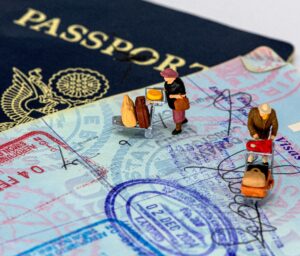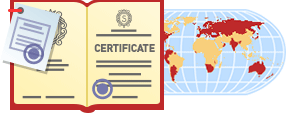
The development of the modern world occurs against the backdrop of constant strengthening of international cooperation between different countries. The creation of unions (for example, the European Union and the African Union), the openness of borders for the entry and exit of foreign citizens to other countries, the absence of obstacles to such movement and other factors contribute, on the one hand, to the development of globalization and individual freedom, and on the other hand, create certain difficulties associated with the peculiarities of document flow in different countries.
In the process of traveling to another country for study, work, marriage, buying a property, business, temporary or permanent residence, citizenship, etc., sometime you may have been asked for your document to be authenticated, legalized, attested or issued with an apostille. Depending on the authority, these terms are used differently to refer to the process of certifying a document from one country in order for it to be recognized in another country. Let’s find out the similarities and differences between the various confusing terms.
Legalization
In order to affirm the authenticity of a document tendered abroad, countries require that such document must be certified by an official in the state where the document was originally issued. This process is known as legalization. There are two main types of document legalization – issuing with the “Apostille” (sometimes this procedure is also called “simplified legalization” or “apostille”) and Consular Legalization.
The choice of the type of legalization in each specific case depends on the country in which the document is to be submitted. While in some countries, documents intended for use in other countries are subject to a TWO-step procedure (Authentication or Attestation and Consular Legalization). In other places, sometimes they are collectively called “Legalization”.
Apostille
Apostille is often called simplified legalization which applies to member states that have ratified the Hague Convention of October 5, 1961 (also known as the Apostille Convention). It was adopted to simplify document flow between countries. Compared to consular legalization, this procedure is indeed much simpler. However, you need to be prepared for the specific requirements of the receiving party. Different countries and even different organizations within the same country may have different requirements for the document. There is only one piece of advice: clarify all requirements in advance.
Several competent authorities are authorized to certify various types of documents with an apostille. It is affixed on the document itself or on a separate sheet attached to the document, which, if filled out correctly and completely, will confirm the legality of the document on the territory of another country.

The apostille can be drawn up either in one of the official languages of the Convention (French or English) or in the national language of the country that issued the apostille. In practice, the inscriptions on the apostille are often duplicated in two languages (one of the Convention languages and the national language).
The list of states for which an apostille will be sufficient is determined by the apostille convention. An up-to-date list of states parties to the Hague Convention of 1961 is available here
Consular Legalization
Consular legalization is a longer and more expensive procedure than apostille certification. It is required when there are no special agreements between countries on the issue of presentation and acceptance of documents, as well as when documents originate from or are to be used in countries that are not part of the apostille convention. In this instance, documents would also require legalization from the respective embassy or consulate. As an example, a USA marriage certificate for use in Qatar would need to be legalized by being stamped by the embassy. The passage of such a procedure by a document maximally confirms its authenticity and ensures the status of legality on the territory of another country.

An important nuance: Consular legalization for one country will not be valid for another. That is, for each country that requires consular legalization, this procedure will have to be completed again. Every embassy or consulate has its own specific procedure for consular legalization.
These terms used to describe the legalization process can be interchangeable or have different meanings in different contexts. At lawlisters.com we ensure your documents are correctly legalized as per the requirements of the country in which they are to be presented.